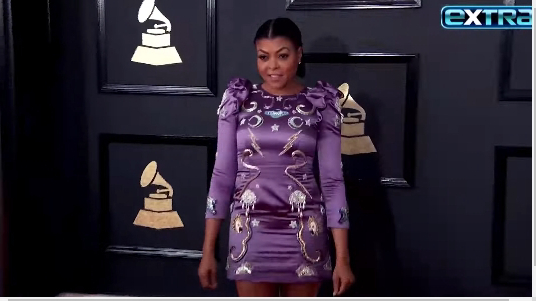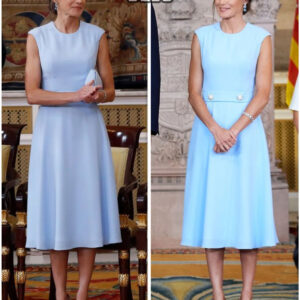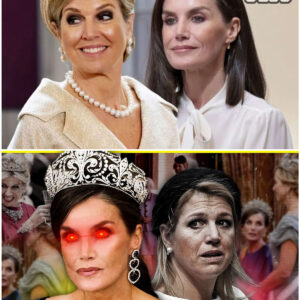Unraveling Allegations: 50 Cent’s Claims Against Oprah Winfrey and Steve Harvey
In the realm of celebrity feuds and controversial claims, Curtis Jackson, widely known as 50 Cent, has once again sparked headlines with his recent allegations against media mogul Oprah Winfrey and television personality Steve Harvey. The rapper turned entrepreneur took to social media to accuse Winfrey and Harvey of orchestrating a covert agenda against acclaimed actress Taraji P. Henson. These accusations have not only reignited public interest in the dynamics of Hollywood but have also raised questions about the integrity of influential figures within the entertainment industry.
On a brisk autumn morning, 50 Cent, known for his blunt and often provocative statements, dropped a bombshell on Instagram. In a series of posts, he asserted that Oprah Winfrey and Steve Harvey were engaged in a clandestine plot to undermine the career of Taraji P. Henson, a powerhouse in the entertainment industry celebrated for her roles in both film and television. According to 50 Cent, this alleged plot was driven by personal vendettas and behind-the-scenes maneuvers aimed at sabotaging Henson’s rise to prominence.

50 Cent (Curtis Jackson): A prominent figure in the music industry, 50 Cent has transitioned from a successful rap career to business ventures in television production and more. His outspoken nature often leads him to be at the center of controversies.
Oprah Winfrey: A media titan, philanthropist, and cultural icon, Oprah Winfrey has wielded significant influence through her television network, production company, and advocacy work. She is renowned for her impactful interviews and global reach.
Steve Harvey: A comedian, actor, and television host, Steve Harvey has built a multifaceted career spanning comedy specials, talk shows, and hosting gigs, including the Miss Universe pageant. He is known for his charismatic personality and motivational speaking.
Taraji P. Henson: An award-winning actress, Taraji P. Henson gained widespread acclaim for her roles in “Empire,” “Hidden Figures,” and “The Curious Case of Benjamin Button.” She is recognized for her talent, versatility, and advocacy for representation in Hollywood.
In the digital age, social media platforms serve as a battleground for public discourse and celebrity spats. 50 Cent’s accusations against Winfrey and Harvey quickly went viral, generating a mix of disbelief, curiosity, and outrage among fans and industry insiders alike. The rapper’s posts suggested that Winfrey and Harvey were actively working to derail Henson’s career trajectory, a claim that, if true, could have far-reaching implications for the entertainment industry’s power dynamics.
Central to 50 Cent’s allegations is the notion that Winfrey and Harvey harbor personal grudges against Taraji P. Henson. Speculation abounds regarding the origins of these alleged grievances, with theories ranging from professional competition to interpersonal conflicts behind closed doors. As public figures with extensive networks and influence, Winfrey and Harvey’s actions—whether intentional or perceived—can significantly impact the careers of their peers.

The entertainment industry operates under the sway of influential figures who can shape narratives, launch careers, or stymie aspirations. Winfrey and Harvey, both renowned for their ability to amplify voices and broker opportunities, wield considerable power within Hollywood’s intricate ecosystem. However, with power comes scrutiny, and allegations of manipulation or unfair practices can tarnish reputations built over decades.
Upon 50 Cent’s accusations surfacing, reactions from the public and industry insiders were swift and varied. Some expressed outrage at the possibility of behind-the-scenes machinations compromising artistic integrity and meritocracy. Others adopted a more cautious stance, urging for thorough investigation and substantiation of claims before drawing conclusions. The polarizing nature of such allegations underscores the fragility of trust in public figures and the complexities of navigating fame in contemporary society.
Historically, the entertainment industry has been rife with tales of ambition, rivalry, and strategic alliances. From legendary feuds between studio moguls to modern-day disputes over royalties and creative control, conflicts of interest are not uncommon. The intersection of personal agendas and professional aspirations can create fertile ground for speculation and controversy, perpetuating narratives that blur the line between fact and fiction.
Social media platforms serve as accelerants in the dissemination of information, enabling celebrities and public figures to communicate directly with global audiences. 50 Cent’s use of Instagram to air grievances against Winfrey and Harvey exemplifies the power of digital platforms in shaping public discourse and challenging established narratives. However, the immediacy of social media also amplifies the risk of misinformation and sensationalism, necessitating critical engagement and discernment from audiences.
In response to 50 Cent’s accusations, representatives for Oprah Winfrey and Steve Harvey swiftly issued denials, categorically refuting any involvement in a conspiracy against Taraji P. Henson. Both Winfrey and Harvey emphasized their respect for Henson’s talent and contributions to the entertainment industry, portraying the allegations as baseless and unsubstantiated. Their statements underscored the importance of factual accuracy and accountability in public discourse, urging restraint in the absence of concrete evidence.
Beyond the immediate fallout of allegations and denials, 50 Cent’s claims against Winfrey and Harvey have sparked broader conversations about transparency, ethics, and power dynamics within Hollywood. The entertainment industry, often perceived as a microcosm of societal aspirations and tensions, grapples with issues of representation, fairness, and accountability. As stakeholders navigate the complexities of fame and influence, the need for ethical governance and equitable practices remains paramount in fostering a supportive environment for creative expression and professional growth.
As the dust settles on 50 Cent’s incendiary allegations, unanswered questions linger, and the dialogue surrounding ethics in entertainment persists. The clash of personalities and allegations of covert agendas serve as reminders of the intricate webs woven within Hollywood’s corridors of power. Moving forward, stakeholders—from celebrities to audiences—must navigate the nuances of celebrity feuds with discernment and a commitment to truth-seeking. In an industry where perception can shape reality, transparency and integrity serve as pillars of trust, ensuring a resilient foundation for creativity and collaboration.
In the ever-evolving landscape of celebrity culture and media scrutiny, 50 Cent’s accusations against Oprah Winfrey and Steve Harvey stand as a testament to the complexities of fame, power, and personal dynamics within the entertainment industry. As the narrative unfolds, the public remains both captivated and cautious, grappling with the implications of allegations that challenge the status quo and illuminate the fragility of reputations in the spotlight.
News
Los científicos finalmente abrieron la tumba de Goliat después de miles de años, descubriendo secretos que sorprendieron y confundieron a todos.
Los científicos finalmente abrieron la tumba de Goliat después de miles de años, descubriendo secretos que han dejado a todos en shock y confusión. Este monumental descubrimiento, que durante mucho tiempo ha sido tema de especulación y mito, ha producido…
LA PRINCESA LEONOR y LA INFANTA SOFÍA PARALIZAN ACTO REAL con SORPRESA PARA EL REY FELIPE ¡LLORARON
La Princesa Leonor y la Infanta Sofía Paralizan el Acto Real con Sorpresa para el Rey Felipe: ¡Lloraron! En el corazón de la vida pública española, los eventos reales suelen ser espectáculos de protocolo, elegancia y seriedad. Sin embargo, a…
5 insólitas costumbres de la Familia Real Española que Letizia Ortiz se niega a seguir
Conoce las ocasiones en las que el carácter rebelde la esposa del rey Felipe VI ha salido a relucir al resistirse a formar parte de las costumbres de los Borbón Letizia se mantiene renuente a seguir algunas de las costumbres…
El estilo de vida ultra lujoso de la Familia Real Española
El Estilo de Vida Ultra Lujoso de la Familia Real Española La Familia Real Española, encabezada por el Rey Felipe VI y la Reina Letizia, es un símbolo de elegancia y sofisticación. Su estilo de vida ultra lujoso no solo…
EL ODIOSO MOTIVO POR EL QUE LA REINA LETIZIA DE ESPAÑA RIVALIZA CON LA REINA MÁXIMA DE HOLANDA
El Odioso Motivo por el que la Reina Letizia de España Rivaliza con la Reina Máxima de los Países Bajos: Un Conflicto de Estilo y Poder En el mundo de la realeza, donde la imagen y la percepción pública juegan…
La Princesa LEONOR: El Lado Desconocido de su LUJOSA VIDA
La Princesa Leonor: El Lado Desconocido de su Lujosa Vida La Princesa Leonor de Borbón, heredera al trono de España, es una figura que despierta un interés considerable tanto en el ámbito nacional como internacional. A menudo vista en eventos…
End of content
No more pages to load











